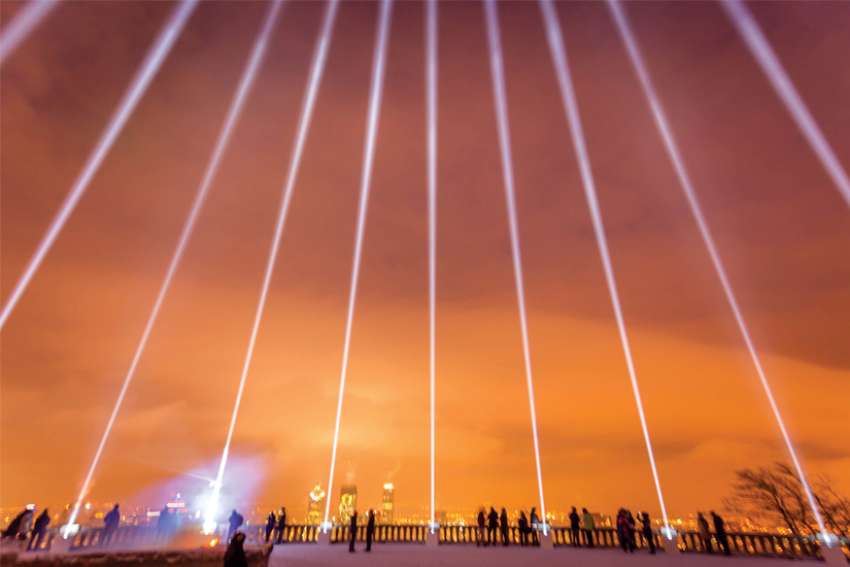Sabrina Di Matteo is the point person for “Remembering So That We Will Do Better,” a declaration on violence against women and vulnerable persons released by the Quebec bishops and prepared by its Council on Church and Society. It comes three decades after the Montreal Massacre, where a deranged gunman took the lives of 14 female mechanical engineering students at École Polytechnique on Dec. 6, 1989, wounding 13 others. That same year, the Quebec bishops had released their document against conjugal violence, “A Heritage of Violence.”
“We thought it would be a good opportunity to push this reflection further and as we took a look at ‘A Heritage of Violence’ it brought us to reflect on how we still have so much work to do,” said Di Matteo, associate director ongoing formation with the Canadian Religious Conference and an officer with The Network of Diocesan Officers for the Status of Women in Quebec.
That the problem of violence against women is still so rampant and there remains the need for a declaration is a black mark on society. Each year on Dec. 6, Canadians are reminded of the horror at École Polytechnique and the scourge of violence with the National Day of Remembrance and Action on Violence Against Women.
“This yearly commemoration is an opportunity to assess the violence still endured by women, as well as the magnitude of the work that is yet to be done by all of us, collectively, in the areas of education, prevention and restitution,” reads the declaration.
“We see that violence against women persists. … For us, Catholics who have signed this declaration, it is our duty to remember — so that we will do better.”
From that day when Marc Lépine deliberately separated the female students from their male counterparts, condemning them as feminists before he opened fire, the world has made strides in recognizing and taking steps to end violence against women. But then came the #MeToo movement, and more recently reports of financier Jeffrey Epstein trafficking in young women among his friends, and the question arises, “how far have we really come?”
“It’s like we’re back to square one. There’s still so much to do,” said Di Matteo.
It was the impetus for the Church declaration, released Dec. 2, which goes beyond violence against women and includes vulnerable persons. It’s “transferred into other spheres,” said Di Matteo, like Indigenous women, pornography, sexual exploitation and human trafficking. And it doesn’t shield the Church from criticism.
“As a Church (we need to) be able to look at ourselves and our history,” she said.
In the wake of the #MeToo phenomenon the Church has its own #ChurchToo movement that has arisen from the large numbers of women religious who have been abused at the hands of male clergy. Then there is the clergy abuse crisis and its victimized children and teens, and the abuses in the Indian residential school system.
“Those go together,” said Di Matteo. “Everything is connected and we really have to look at our responsibility, especially as a Church, if we want to (have a) better model of humanity.”
Di Matteo credits the Quebec bishops for lending their support, but more so for leaving this declaration in the hands of its female partners.
“The bishops took a secondary role and said this will be the women’s declaration,” at the same time standing firmly behind the declaration and adopting it as “the Church of Quebec’s message,” said Di Matteo.
Dioceses across Quebec took part in commemorating the women who were slain 30 years ago with vigils, walks and the illumination of the Montreal night sky with 14 light beams. The victims were also posthumously honoured with Quebec’s Medal of the National Assembly Dec. 5. Among the victims was Annie St-Arneault, the 23-year-old sister of Fr. Serge St-Arneault. He was in Quebec City to take part in the ceremony, reported Presence, a French-language religious news agency in Quebec.
St-Arneault, a Missionary of Africa who is director of the Centre Afrika in Montreal, said the anniversary underscores the fact the responsibility to remember lies with society as a whole.
“Our choices and our determination as a social group to fight for gender equality at all levels have been, are and will continue to be inspired by the tragedy of the Poly,” he told Presence. “Hence the importance of preserving this painful memory.”


